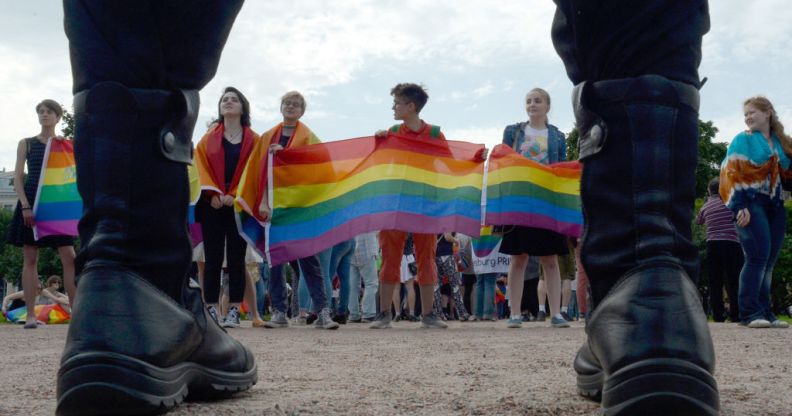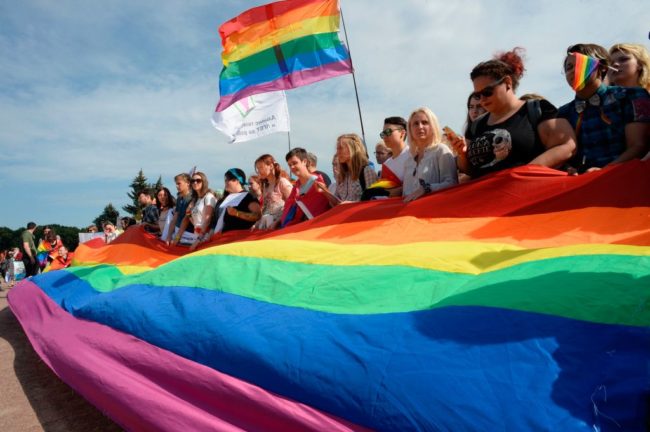Russian festival banned for promoting ‘non-traditional family values’

OLGA MALTSEVA/AFP/Getty
A youth festival in Russia has been shut down by authorities for breaching the country’s notorious “gay propaganda” law.
The theatre festival was banned because of a planned staging of a play called Blue and Pink, which was set to explore gender stereotypes.
According to Hyperallergic and local Russian media, the festival was allegedly banned for “hatred against men and non-traditional family relations” and for “attempting to illegally hold an LGBT event.”
The event, which was called Tsvet Shafrana (The Colour of Saffron), was due to take place in Komsomolsk-on-Amur before it was called off.
The festival was also set to tackle bullying and war
Blue and Pink was one of just four youth theatre performances that was due to take place at the festival, where they were also set to explore issues around bullying in schools and war.
The festival also experienced issues in finding a venue, with two separate locations initially agreeing to host them and later pulling out.
Police allegedly received three different anonymous letters complaining about the festival and its organiser, Yulia Tsvetkova.
“The festival was banned for ‘hatred against men and non-traditional family relations.'”
– The festival’s director
Following on from the complaints, police questioned her as well as teenagers who were involved in the production of the play.
Tsvetkova said that authorities had grown concerned over the use of the words “blue” and “pink” in the play’s title as they are seen to be related to the LGBT+ community.

OLGA MALTSEVA/AFP/Getty
She also said that police presented her with printed out copies of posts she had made on social media about feminism, homosexuality and other issues.
Russian ‘gay propaganda’ law harms children
Russia’s “gay propaganda law” has been a source of repeated controversies since it was introduced in 2013.
Last August, there was international uproar when a 16 year old boy was found guilty under the law for posting pictures online. His sentence was later overturned on review as it was decided that there was not enough evidence.
Then, in December, police confiscated 17 drawings from a school in Yekaterinburg for “promoting homosexuality.”
Meanwhile, the European Court of Human Rights ruled last year that the country’s ban on pride events was violating LGBT+ people’s human rights.
Human Rights Watch released a report last year looking at the law in-depth and the impact it has had on young people in Russia.
“We know that most people believe the mass media, and the stories there teach them that we are horrible creatures, so we are in danger all the time.”
– 18 year old transgender person interviewed by Human Rights Watch
They found that the law was directly harming and endangering LGBT+ people.
The human rights group found that the law has exacerbated hostility against LGBT+ people in Russia and that it has prevented them from accessing inclusive education and support services.
They also interviewed young LGBT+ people living in Russia about their experiences – with many pointing to an intensification of stigma, harassment and violence since the law was introduced.
One transgender person, who is 18 years old, told Human Rights Watch that LGBT+ people in Russia now fear getting beaten on the street.
“We know that most people believe the mass media, and the stories there teach them that we are horrible creatures, so we are in danger all the time.”

